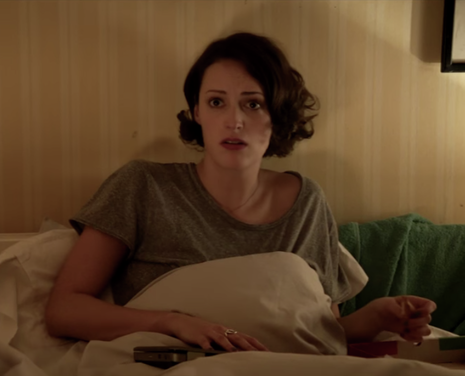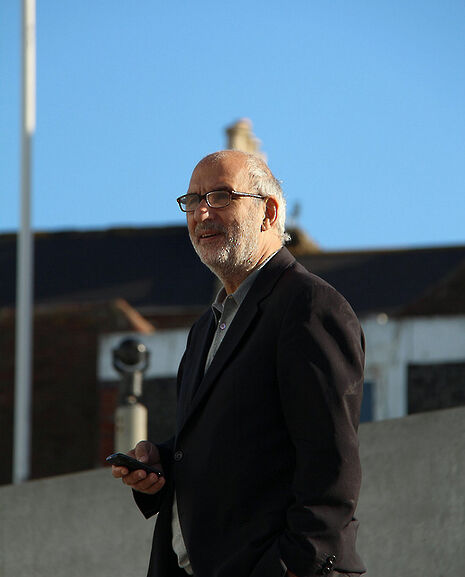Creativity will be the casualty of BBC budget cuts
The BBC is in its most precarious position in its history, threatened by the changing way we consume entertainment, ideologically driven budget cuts and the influential right-wing press

It is of increasing concern to me that our generation will get used to just having less. Specifically, having fewer of the opportunities and services that our parent’s generation seemed to take for granted. There is a perception that we don’t deserve tuition fees lower than £9,000, that we don’t deserve free health care, quality journalism or decent mainstream entertainment. This is creeping into our society, partly because the institutions that underpin these services – universities, hospitals, the BBC – are being slowly eroded, until the only option left is either privatisation or bust.
We can’t only blame the Tories for this. While the Coalition’s successive White Papers have a lot to answer for, society as a whole has changed drastically: it may come as a surprise to you, but people under 25 don’t all watch Top of the Pops on a Thursday night, as they did in the 70s and 80s. In fact, nationally, we don’t all do much anymore – so much of the news and entertainment we consume is international (Netflix, YouTube) or simply didn’t exist back when the two Ronnies were commanding regular audiences of 17 million per show. This fragmentation has led to a wealth of creativity and international collaboration but has changed the role of the BBC profoundly.
“The public are sleepwalking into losing something which makes this country not great, or powerful or historic but just… a nicer place to live, work and be a person in.”
Threats such as the changing way we consume media may sound familiar – all media organisations face them for the foreseeable future. But there is a wealth of evidence that the BBC has actually weathered these changes quite well. The Beeb was an early embracer of streaming (as exemplified by the success of BBC iPlayer, thanks to the actions of former Director General Mark Thompson) and has invested with success in its influential World Service. Under difficult conditions it commissioned the best television of the last 15 years: The Thick of It, Wolf Hall, Stewart Lee’s Comedy Vehicle, The Trip, Imagine, The Office – and these are just my favourites from BBC2.
I want to end the myth that persists both about the NHS and the BBC – that Britain gets by with them. The opposite is true. The BBC’s content is the envy of the world (demonstrated by the almost £1.4bn it took in the year 2013/14 not from sources other than the licence fee – mainly by selling on programmes through BBC Worldwide) and the NHS’s care is some of the best in the world. For free. Not appreciating what we have is the first step towards losing it.
The BBC’s greatest asset, the ‘unique way it is funded’ (as Jeremy Paxman likes to quip), may also be its Achilles’ Heel. The publicly funded broadcaster is left totally vulnerable to ideological tampering from government ministers, with every penny spent scrutinised over (providing good copy for tabloids on a slow news day). It is left crippled by funding shortages, and an inability to match the salaries of TV talent and big industry executives.

No matter your opinion on the rights or wrongs of any of this, it puts the BBC at key competitive disadvantages. The BBC was repeatedly offered the rights to The Crown (which is now a huge Netflix hit), but simply couldn’t pay up, so the production went elsewhere (“they wanted to go to the BBC and they knew the BBC couldn’t afford it all”, says former Creative Director Alan Yentob). Yentob himself was being paid £330,000 until a year ago, an eighth of the £2.3 million received by ITV’s group Finance Director, Ian Griffiths, for the same year. Under new rules, any individual earning over £150k in the BBC will be publicly announced. The double standards are astounding: the right-wing media attack the BBC for gratuitous spending, but at the same time demand a private sector model which leads to the disgusting wealth of people like Griffiths.
The BBC holds the unenviable badge of being a ‘public institution’ – nothing is so despised in the media (and, increasingly, Western society) than the metropolitan, liberal, diverse, public institution. See Michael Gove’s infamous “this country has had enough of experts”, or the appointment of Breitbart’s Steve Bannon as Donald Trump’s Chief of Staff, or the decision to make an oil tycoon head of a government environmental body he is in the process of suing.
I think that while a certain amount of measured scepticism about the people who have a major influence on mainstream news and culture is vital, we place ourselves at risk of a deluge of fake news, of misleading statistics, and a post-truth landscape if we don’t defend professional journalism and social criticism. This is why it is alarming when Labour’s John McDonnell speaks at the Cambridge Union and whines about the harsh treatment supposedly dished out by the liberal BBC to Momentum et al. When a man who throws Mao’s Little Red Book around Prime Minister’s Questions can’t defend one of the greatest socialist experiments ever undertaken in this country, it’s clear something, somewhere, has gone deeply awry.
Let's never go through again 10 or so months of uncertainty and anti-BBC tone that damaged the best TV industry in the world. #BBCwhitepaper
- Armando Iannucci (@Aiannucci) May 12, 2016
The BBC has never been in a more precarious position in its 94-year history than today. If you think you’ve had a bad 2016, think what a year the BBC has had: its most popular stars gone to rival broadcasters, publicly wracked by child sex scandals and accusations of political bias, while having to operate with a 20 per cent reduction in licence fee payments compared to 2010. According to the Office for Budget Responsibility, the BBC’s annual income will decrease a further £745 million by 2020. At around £5 billion, it is now half the size of Sky’s. So far, 300 staff have been made redundant to make way for increasing commercialisation through its BBC Studios arm. Minister Karen Bradley observed to MPs during the Great British Bake Off debacle earlier this year that the show being on the BBC was a missed opportunity to sell advertising – “the biggest programme with no adverts on it at all in the world”, she called it.
The organisation is in crisis: “The BBC was clever enough and bold enough and actually sweet natured enough to commission a programme about cakes, and then it grew into a phenomenon,” says Alan Yentob. “You have got all these other commercial devices. Can you not have one place which is allowed to be like this?”
The public are sleepwalking into losing something which makes this country not great, or powerful or historic but just… a nicer place to live, work and be a person. Like the NHS, it is a quasi-socialist experiment which aspires to reshape our whole lives. Maybe that’s why the Daily Mail hates it. The BBC suffers on two levels – the societal, where we are becoming a culture, for better or worse, which consumes media in many new and various ways, and the political, where the Corporation has been savaged by budget cuts, ministerial tampering, and callous attacks from the influential right-wing press.
Like the climate, the BBC needs saving and we’re already feeling the effects. “When you are working with a pinched budget one of the casualties tends to be creativity”, says Yentob. Budget cuts and value for money, then, are the reason for the endless shows with Greg Wallace in. I don’t have any quick answer to these issues, but we should be wary of our perception of the BBC’s calm glamour. It hides the deeply worrying position it finds itself in
 Features / Should I stay or should I go? Cambridge students and alumni reflect on how their memories stay with them15 December 2025
Features / Should I stay or should I go? Cambridge students and alumni reflect on how their memories stay with them15 December 2025 News / Cambridge study finds students learn better with notes than AI13 December 2025
News / Cambridge study finds students learn better with notes than AI13 December 2025 Comment / The magic of an eight-week term15 December 2025
Comment / The magic of an eight-week term15 December 2025 News / News In Brief: Michaelmas marriages, monogamous mammals, and messaging manipulation15 December 2025
News / News In Brief: Michaelmas marriages, monogamous mammals, and messaging manipulation15 December 2025 News / Uni Scout and Guide Club affirms trans inclusion 12 December 2025
News / Uni Scout and Guide Club affirms trans inclusion 12 December 2025









